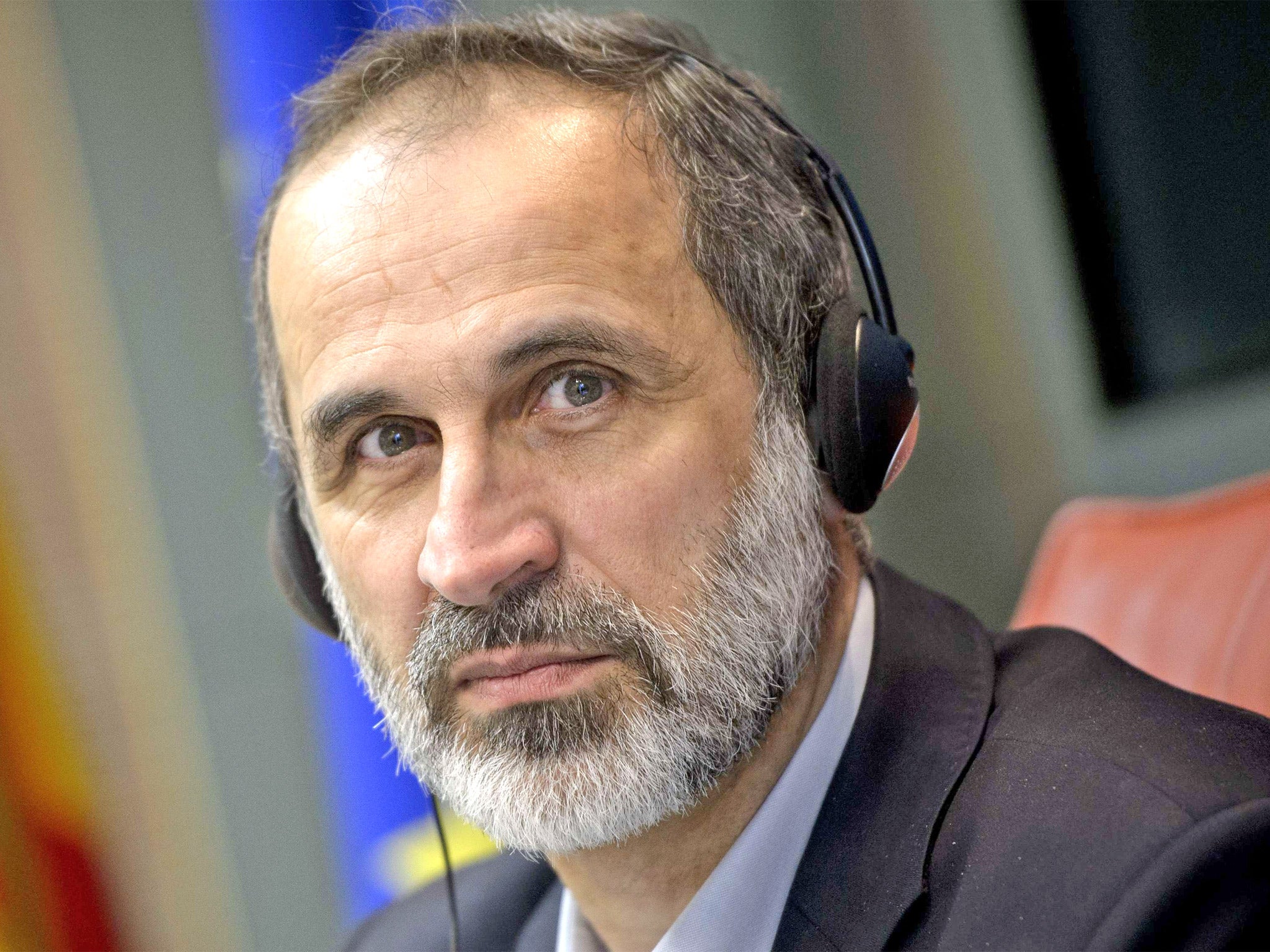Syrian rebels turn on their political leadership after EU lifts weapons embargo
Fighters want more of their members added to exiled Syrian National Coalition

Your support helps us to tell the story
From reproductive rights to climate change to Big Tech, The Independent is on the ground when the story is developing. Whether it's investigating the financials of Elon Musk's pro-Trump PAC or producing our latest documentary, 'The A Word', which shines a light on the American women fighting for reproductive rights, we know how important it is to parse out the facts from the messaging.
At such a critical moment in US history, we need reporters on the ground. Your donation allows us to keep sending journalists to speak to both sides of the story.
The Independent is trusted by Americans across the entire political spectrum. And unlike many other quality news outlets, we choose not to lock Americans out of our reporting and analysis with paywalls. We believe quality journalism should be available to everyone, paid for by those who can afford it.
Your support makes all the difference.Syrian rebel groups have strongly criticised their political leadership outside Syria, saying it has no real connection to the rebellion and calling for half of its members to be drawn from fighters inside the country.
The rebuke follows a chaotic week for the Syrian National Coalition (SNC) and is likely to further undermine the standing of the opposition to Syrian President Bashar al-Assad which has been treated by its foreign backers as if it were capable of replacing Mr Assad and its regime.
A meeting of the exiled SNC in Istanbul has still not decided if it will attend a peace conference in Geneva, tentatively planned for June, and, if so, who should attend. It is also deadlocked about Western-supported proposals to broaden the membership of the 60-member coalition with more secular representatives.
The statement issued in the name of the Revolutionary Movement in Syria said that the failure of the opposition had opened the door to “blatant interference” by outside powers. This is probably a reference primarily to Saudi Arabia and Qatar, which support different opposition factions; Qatar supports the Muslim Brotherhood, which is regarded with suspicion by the Saudis.
As serious diplomatic moves aimed at a negotiated settlement initiated by the US and Russia begin, the total disarray and rancorous disagreements of the Syrian opposition will seriously hamper efforts by their foreign backers to support them as the new leadership of Syria.
The Revolutionary Movement of Syria said it could not “bestow legitimacy upon any political body that subverts the revolution”. Moaz al-Khatib, the former leader of the coalition, said he had stepped down because he had no influence and the group was a proxy for Saudi Arabia and Qatar.
The chaos in opposition ranks is also likely to discredit the EU decision to end the arms embargo on supplying weapons to the rebels. Russia warned that the decision would damage plans for peace talks being made by Russia and the US. In response, Russia has already said it will send ground-to-air S-300 missiles to Syria, while Israel has said it will act to stop their delivery.
Meanwhile, inside Syria elite troops are being sent to reinforce the government offensive against the town of Qusayr outside Homs, near the Lebanese border.
Rebels there have been under heavy attack for a week but are still holding out in parts of the town, which is heavily damaged. Fighters from Hezbollah in Lebanon are for the first time playing a central and open role in the fighting, which has also been joined, on the rebel side, by Sunni fighters from Lebanon.
In a further development, Britain said it had sent a letter to Secretary-General Ban Ki-moon with new information of alleged chemical-weapons use by the Syrian government. Britain’s UN Ambassador Mark Lyall Grant said his Government has continued to provide new information to the UN.
Join our commenting forum
Join thought-provoking conversations, follow other Independent readers and see their replies
Comments